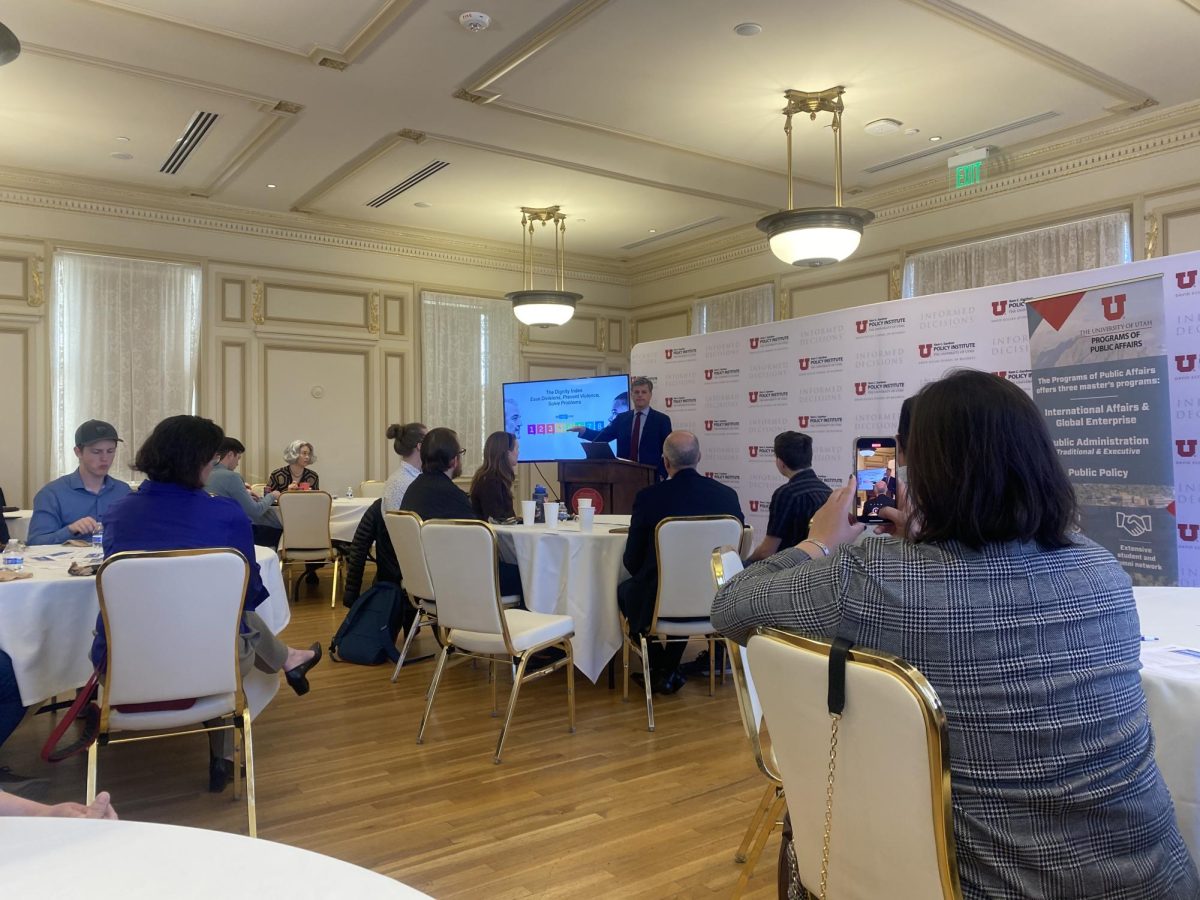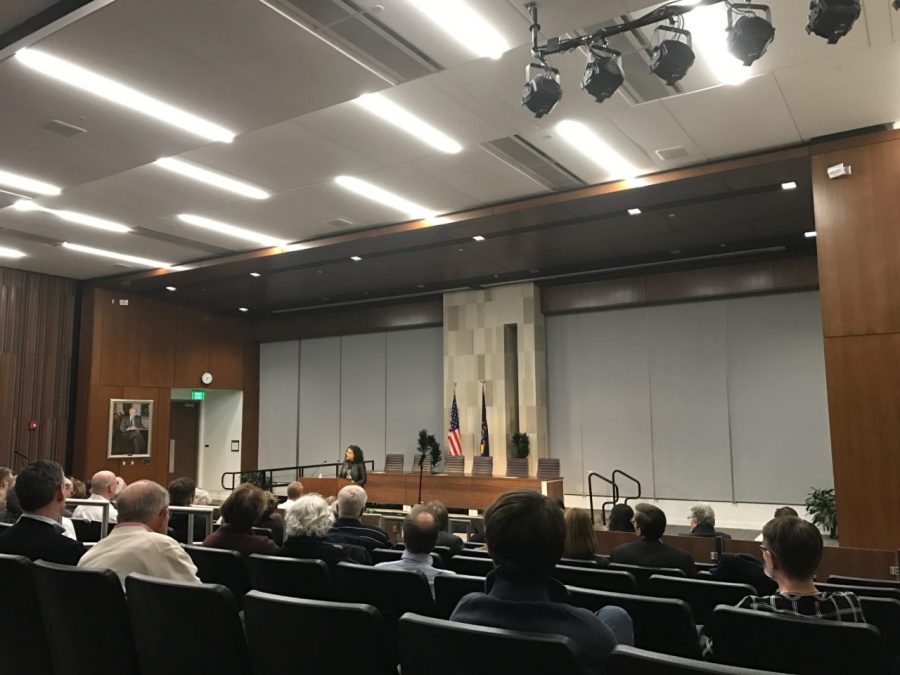Wednesday’s 51st annual William H. Leary lecture paid tribute to the former dean of University of Utah’s law school with a keynote speech delivered by Tracey L. Meares, proposing solutions in reducing crime.
Meares, a distinguished professor at Yale Law School, spoke on legitimacy of law enforcement. The speaker is primarily known for her research on the legitimacy of police work and the social effects and purpose of having police officers in a society.
According to Meares, who also served as policy worker under the Obama administration, said,“Most people think that the primary function of police is to address crime, but the reality is that decades of research finds little support for this popular idea.
She added, “Until recently, very few people believed that police made a difference in the crime rate.”
Utilizing empirical research and facts, Meares endeavors to explain the theory behind this statement.
“Why do people obey laws that they don’t agree with? Nobody can take seriously that they should not commit a crime because of the consequences that could ensue,” she said.
Meares added, “Most people obey the law because they think it is right.”
Additionally, if citizens do not agree with the law, they believe that authority had the right to dictate what behavior is proper.
“They believed that their government was legitimate,” Meares said.
In a criminal justice proceeding, it is not the outcome that matters, but the process through which the outcome is obtained.
Citizens want to feel like the criminal justice system is fair and the level of fairness with which they are treated will determine whether they respect the law or not.
The four factors Meares thinks matter most are “Participation and voice; people appreciate the opportunity to explain their side of the story. They want to be taken seriously even if they know that it will have no impact. Second, people care a great deal about the way that the decision maker makes decisions. The decision maker should take the time to explain what they are doing and why. Third, people care a lot about how they are treated. They want to be treated with dignity and respect. The last factor is that in their interactions with authorities, people want to feel as though the authorities are acting with benevolence towards them.”
Meares also argues that hidden messages within education affect whether or not laws and rules of democracy are internalized by young people.
For example, when students are lined up to go out for recess, they are often organized in a line of boys and a line of girls — guidance that suggests they are different. Subtle societal rules show people of what subordinate populations they belong to, which promotes a distrust in the system because they feel as though they have fewer rights than other groups.
The speaker’s main focus was that a reform in the way rules and laws are enforced and outlined in education would lower rates of criminal activity.
This can also be seen in rates of police officers pulling over people of color for smaller issues more often than Caucasian members of the population. This also calls into question the legitimacy of the system, because it implies that officers can pick and choose who they punish at will. It implies corruption, which implies a lack of legitimacy in the law itself.
Research has shown that when police are seen as fair and reasonable it can change their behavior. Meares argues that public trust and legitimacy should be the primary goal of law enforcement. In turn, this will cause an overall increase in safety and wellness of officers and people and ultimately a reduction in crime.
Meares concluded her lecture with a commentary on the current administration, claiming that Trump’s executive orders have been ill-advised and will likely lead to an increase in crime rates and a general distrust of the system itself.











